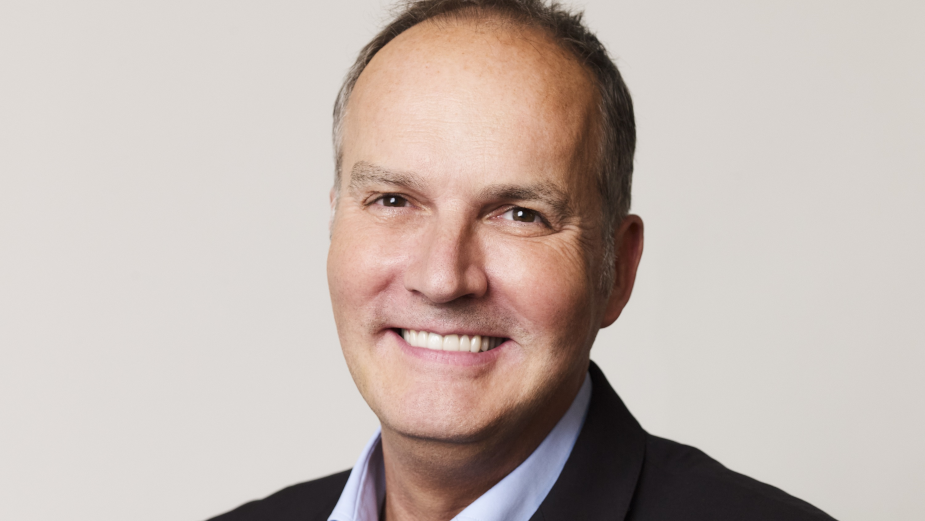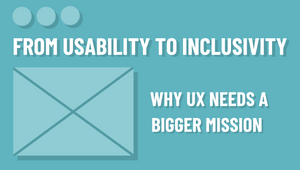
How abrdn Re-Framed the Power of Investment for Positive Change

As brands’ marketing needs evolve, in-housing is becoming an increasingly appealing avenue for marketers. From full-service agencies and content studios to hybrid models that allow brands a more a la carte approach, there are many ways to approach in-housing. ‘Inside In-housing’ is a feature series created in partnership with OLIVER (the pioneer of the in-house model for brands), in which marketers explore the different opportunities and challenges of modern-day agency models.
One of the biggest challenges any marketing organisation can face is the rebrand. There’s no singular ‘right’ way to rebrand yourself, and no all-powerful marketing model to adopt. Rather, it’s all about learning as much as possible about both who you are and the marketplace around you.
This was the challenge facing abrdn - formerly Aberdeen Standard Investments - last year. Following the brand’s research, one key insight thrown up was a curious paradox which abrdn was well-positioned to solve. On the one hand, consumers said they would be more inclined to invest if they thought their money could go towards achieving good in the world. But on the other hand, many of those same consumers weren’t aware of how small and medium sized investments were driving progress in fields such as sustainability, medicine, and technology. The goal for abrdn, then, was to show people how their investments could change the world.
Spearheading that drive was chief brand, marketing, and corporate affairs officer Stephen Whitehead. To find out how abrdn’s rebrand came together, and better understand the marketing model which made it all possible, LBB spoke to Stephen…
Above: abrdn’s ‘The Power of Investment’ ad shows how the rewards of our investments can extend beyond the financial.
LBB> Obviously there have been some massive changes at abrdn in the last year in terms of the rebrand and the new campaign - I’m curious about what strategic objectives drove that big refresh?
Stephen> Our business has been through a transformative year. Since our new CEO joined at the end of 2020, we have put in place a new strategy focused on client-led growth and built around our three growth vectors, Investments, Adviser and Personal. As part of this strategy, we’ve sold non-core parts of our business, and acquired new capabilities. Aligning our brand to this strategy was key, and it was about demonstrating how we’ve come together as one organisation with five distinct brands. It was about recognising how the needs of our customers and our business partners are changing - including a desire for greater transparency from organisations, in terms of purpose or the way that investment works.
LBB> And I’m curious about whether that external transformation has come with internal shifts or developments in your marketing set up or approach?
Stephen> All organisations need to be ready for and have the ability to adapt to change. The experience of the last two years has taught us the need to be responsive to what’s happening in the world; whether that’s a global pandemic or the need to build our brand to support our growth ambitions. Our marketing approach has evolved to be able to deploy new capabilities as well as support our more conventional fund and product activities.
LBB> The pandemic has forced a lot of marketers to find new ways to work - as well as becoming more responsive to shifts in consumers’ needs. I was wondering what your experience of that was at abrdn?
Stephen> We certainly look to use more cost-effective ways to reach our target audiences, including increased use of performance media and being more focused on identifying behavioural changes that we can more easily and swiftly respond to. But we’re also very conscious that we’re talking about people’s lives and their futures, so building emotional rapport and engagement is critical at this stage of our brand development. Using high impact channels such as TV and OOH still have a role to do just that.
LBB> And what lessons or insights do you think will stick for the long term?
Stephen> That there are no quick fixes when it comes to establishing a new way of looking at what we do. This is not just a campaign for us, but a long term mission to reframe the way that investment is thought about more generally. We think that this is a quite brave but much needed position to take within the sector.
LBB> How has this world-altering two years changed the way people see money and investment as well as the kinds of audiences that are open to or interested in your products and services - what impact has that had at a strategic level?
Stephen> We’re responding to an increasing need for consumers, customers and business/strategic partners to understand what drives an investment organisation. We don't think that is unique to us - we’re just aware that with more knowledge of how investment can work, future investors are enabled to make better decisions for themselves. We want to empower people to be better investors.
And by the way, ‘better’ isn’t just a measure of investment performance. We think there’s also great value in better knowledge and more informed decision-making without needing to resort to technical language and confusing industry terminology.
LBB> Generally, I’m seeing brands wanting to have more capacity to generate content in order to be responsive and engage with proliferating platforms - but I’m curious as to whether that’s a concern for a brand in the investment sector or whether a considered approach is more appropriate?
Stephen> We want to be relevant to our many audiences, and that can be reflected in the type of content we either create ourselves or want to associate ourselves with. The important thing is that we think about what people need from us rather than what we just want to tell them. Clearly there are times when we just want to make sure people know what we do and how we can help them. It’s just about understanding where they are on their journey to get to know and transact with the abrdn brand.
LBB> One development we’ve seen increasingly is brands taking different aspects of creative, production or media in-house. Is that something abrdn has done - if so, how would you describe the model? And if not, what are the issues you see with this approach?
Stephen> Like any big brand we need to have the capacity to identify and use the resources we need, at the right time and to do this in the most cost effective way possible. We have some elements of design and production in house, but where we need capability that’s in addition to our ‘business as usual’ activities, we are happy to find additional external talent to help support us. We work closely and in partnership with these teams just as we would with internal resources.
LBB> And on the flip side, as a marketer who has worked with countless agencies in your time, what are your thoughts on the agency model?
Stephen> We have found a combination of inhouse expertise and external talent has worked very well for us. We can draw on the knowledge of colleagues, and this complements the support we sometimes use externally. I’m a great believer in making the most of all resources available to deliver the best outcomes.
LBB> And what’s the most effective way to get the best out of your external partners?
Stephen> Be clear about what you want and need, be open and honest about the context and any challenges they may face, be consistent and listen to them. With those ‘rules’ in place I find most partnerships are more effective!
LBB> Your rebrand itself was catalysed by multiple factors - but one influential factor was, I understand, the need to create something that could be sticky and searchable in the online environment, and would also feel fresh and relevant in a rapidly evolving sector. How else is that drive to assert the brand in the fintech age shaping your approach to marketing?
Stephen> Being searchable in the online environment is a factor for any big brand, but what feels relevant and future focused is a desire to make investment more accessible. Being the brand that can shine a light on the power of investment and what it can do to change the world helps engage all our audiences, from consumers to those who can help advise consumers, to the wholesale and institutional markets. We believe this way of thinking is very relevant for now and the future. The way we reach the audiences through our marketing channels is just about choosing the right way to execute.
LBB> I know abrdn sees itself as very much a client-led business - to what extent does your (and your team’s) remit cover experience?
Stephen> The brand and marketing team are absolutely central to bringing the voice of the client into the business. For much of our business we do this in partnership with colleagues in relationship management teams but for direct customers, we are the sales team so we have the deepest knowledge of our clients and customers interact with us. This is a huge responsibility for the team, but it’s also a privilege to be in this role.
LBB> On a final note, and as someone who has worked across numerous brands and sectors, what sort of advice do you have for new marketers coming into the industry?
Stephen> I have indeed worked in a variety of sectors, from pharmaceuticals, the commercial drinks industry, and financial services all over the world. And what I would say is, don’t look at a traditional marketing structure and try and identify the role you want in it because that role might not exist in 10, five, or even a year’s time. Instead, think about the trends that you as a consumer are seeing, be a problem-solver, and look for roles that allow you to develop skills and experience to better meet client needs.
And also, I would say, don’t forget to look for a job you would enjoy. That will always be an important factor!















